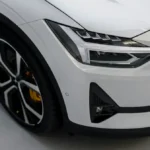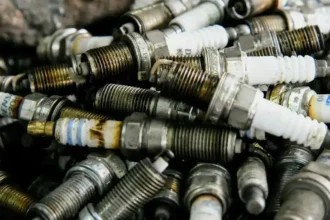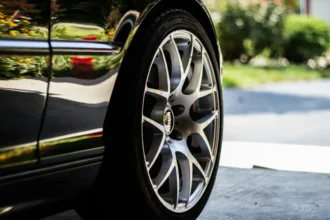Have you ever wondered how your car handles the scorching summer heat? Can your vehicle survive the hottest days of the year without breaking down?
If these questions cross your mind as the temperature rises, you’re not alone. Hot weather can be as taxing on your car as freezing winters. But don’t worry—this article is here to help you prepare your car for summer driving with practical, research-backed car maintenance tips. We’ll cover everything you need to know to keep your car running smoothly in extreme heat, from cooling systems to tire pressure. Let’s dive in!
Why Is Hot Weather a Concern for Car Maintenance?
Hot weather puts unique strains on vehicles, especially when temperatures soar beyond 90°F. Excessive heat can stress your car’s engine, battery, tires, and fluids, causing potential breakdowns and costly repairs. Here’s why this matters:
- Overheating engines: High temperatures increase the chances of engine overheating, particularly if the cooling system isn’t functioning at its best.
- Fluid evaporation: Essential fluids such as coolant, oil, and brake fluid can evaporate or break down faster in the heat, reducing their effectiveness.
- Tire pressure fluctuations: Hot weather causes the air in your tires to expand, leading to potential blowouts if not monitored properly.
With these issues in mind, let’s dive into actionable steps for keeping your car cool and road-ready in hot weather.
Top 10 Car Maintenance Tips for Hot Weather

1. Check Your Cooling System Regularly
Your car’s cooling system is your first line of defense against engine overheating in hot weather. Here’s how to maintain it:
- Inspect coolant levels: Check the radiator and coolant reservoir regularly to ensure they are filled to the recommended levels.
- Check for leaks: Look for any signs of leaks in the hoses and radiator.
- Flush the system: Follow your car manufacturer’s guidelines for flushing and refilling the coolant system. It’s typically every 30,000 miles.
Pro tip: Use a 50/50 mix of antifreeze and water for optimal cooling system performance.
2. Monitor Tire Pressure
Tire blowouts are more common in hot weather because the heat causes the air inside tires to expand.
- Check your tire pressure frequently: Use a tire pressure gauge to ensure that your tires are inflated to the manufacturer’s recommended PSI.
- Inspect for wear: Hot roads can also accelerate tire wear, so check the tread depth regularly.
- Rotate your tires: Regular tire rotation ensures even wear and helps tires last longer.
Tip: Always check your tire pressure when the tires are cool for accurate readings.
3. Test Your Car Battery
High temperatures can damage the internal structure of your car battery, leading to shorter life spans.
- Inspect the battery terminals: Look for corrosion on the battery terminals and clean them if necessary.
- Test battery voltage: Many auto parts stores offer free battery tests to ensure your battery is holding a charge.
Pro tip: Batteries older than 3 years may struggle in extreme heat, so consider replacing them if necessary.
4. Replace or Clean Your Air Filter
Dust and debris accumulate faster in hot, dry conditions, clogging your air filter and reducing engine efficiency.
- Inspect the air filter: Check the condition of your air filter monthly, especially if you frequently drive in dusty environments.
- Replace as needed: If your air filter looks dirty or clogged, replace it. A clean air filter helps improve fuel efficiency and engine performance.
5. Inspect Belts and Hoses
High heat can cause rubber components like belts and hoses to crack or become brittle.
- Look for signs of wear: Check for cracks, fraying, or soft spots on your belts and hoses.
- Replace if damaged: If you spot any wear and tear, replace these components before they fail.
6. Keep an Eye on Fluid Levels
Hot weather causes fluids to evaporate faster, making it essential to regularly check levels of all critical fluids.
- Coolant: As mentioned earlier, maintain the correct coolant levels.
- Engine oil: Check the oil level regularly, as the heat can cause it to degrade faster.
- Brake fluid: Heat can make brake fluid less effective, so inspect and top it off if necessary.
7. Use the Right Engine Oil
In hotter climates, switching to a higher viscosity engine oil can offer better protection.
- Consult your manual: Your car’s manual will recommend the best oil type for hot weather driving.
- Synthetic oil: Consider using synthetic oil, which is more resistant to heat breakdown than conventional oil.
8. Maintain the Air Conditioning System
Nothing is worse than having your AC break down during a heatwave. To avoid this:
- Test your AC performance: Ensure that the air conditioning is blowing cold air. If it feels weaker than usual, it may need a recharge.
- Inspect the AC system: Check for leaks or wear in the AC compressor and refrigerant lines.
Pro tip: Regular AC maintenance helps keep you comfortable and prevents the system from overworking in extreme heat.
9. Check the Windshield Wipers
Hot weather can dry out your windshield wipers, making them less effective.
- Inspect for cracking: Look for any signs of cracks or stiffness in the rubber blades.
- Replace as needed: If the wipers are leaving streaks or not cleaning effectively, replace them.
10. Park in the Shade
Whenever possible, park your car in shaded areas or use a sunshade to minimize interior heat buildup.
- Use windshield covers: These reflect the sun’s rays, keeping your car’s interior cooler.
- Crack windows: Slightly crack your windows to allow hot air to escape and keep the interior from overheating.
Recommended Fluid Check Intervals
| Fluid Type | Check Interval | Hot Weather Tip |
|---|---|---|
| Coolant | Every 1 month | Use 50/50 antifreeze and water mix |
| Engine Oil | Every 1 month | Switch to synthetic for better heat resistance |
| Brake Fluid | Every 6 months | Ensure it’s topped off for optimal braking |
| Transmission Fluid | Every 1 year | Check for leaks or burnt smell in the fluid |
FAQs About Car Maintenance in Hot Weather
Q1: How often should I check my tire pressure in hot weather?
A: It’s a good idea to check your tire pressure at least once a week during hot weather, as heat can cause rapid changes in air pressure.
Q2: Can hot weather affect my car’s battery?
A: Yes, high temperatures can cause the fluid inside your battery to evaporate, leading to a shorter lifespan.
Q3: Should I switch to a different oil for summer driving?
A: If you live in an area with extremely high temperatures, consider switching to a higher viscosity oil or synthetic oil, as they offer better protection in the heat.
Q4: Why is my car overheating?
A: Overheating can be caused by a malfunctioning cooling system, low coolant levels, or a problem with the radiator. Be sure to check these components regularly.
Final Thoughts
Hot weather doesn’t have to be a problem for your car if you follow these essential car maintenance tips. From checking your cooling system to inspecting your tires, a little preventive care can go a long way in keeping your vehicle running smoothly during the summer months. Taking care of your car in extreme heat not only prevents costly repairs but also keeps you safe on the road.
So, as the temperature rises, stay prepared, follow these car maintenance tips, and enjoy a hassle-free summer drive!!








